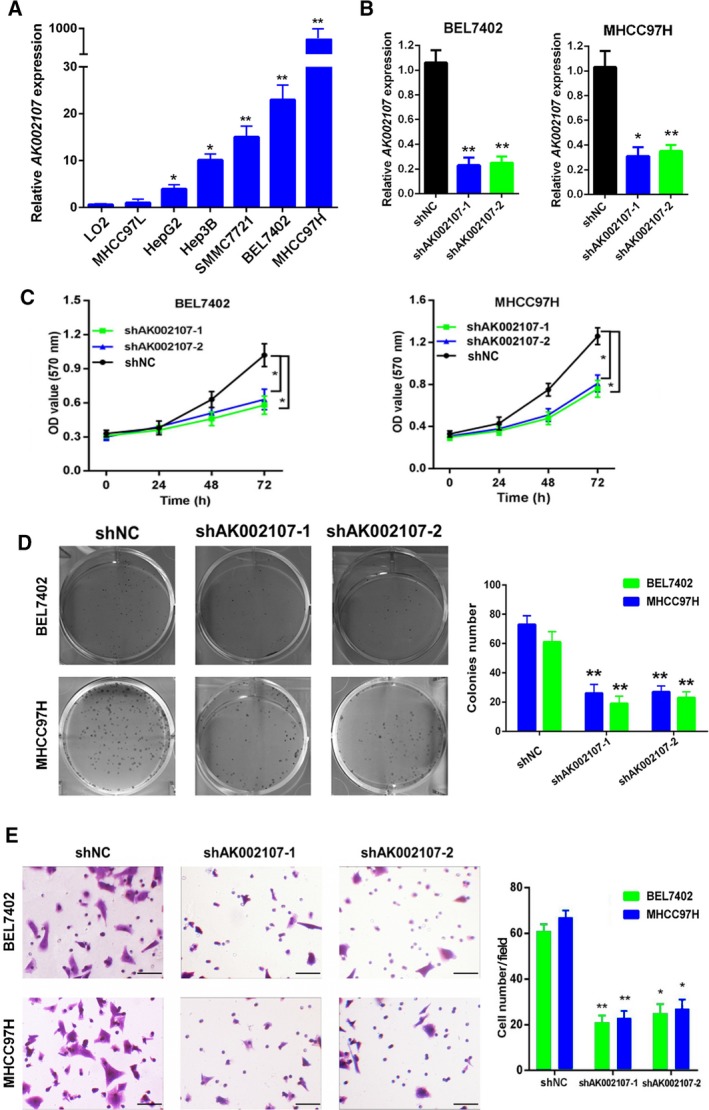Figure 2.

lncRNA AK002107 promotes HCC proliferation, colony formation, and invasion in vitro. (A) The expression of lncRNA AK002107 in six human HCC cell lines, including MHCC97H, MHCC97L, BEL7402, SMMC7721, Hep3B, and HepG2, was upregulated compared to the normal cell line LO2, as determined using qRT‐PCR. *P < 0.05 and **P < 0.01. (B) The expression of lncRNA AK002107 was detected in BEL7402 and MHCC97H cells using qRT‐PCR after the transduction of lentiviruses encoding lncRNA AK002107 short hairpin RNA (shRNA)‐1, shRNA‐2, or scrambled shRNA. All qPCR results shown as data from at least two independent replicates. Statistical analyses using one‐way ANOVA with Tukey's post‐test, *P < 0.05. and **P < 0.01. (C) MTT assays were performed to assess the proliferation of the HCC cell lines BEL7402 and MHCC97H in response to transfection with lncRNA AK002107 shRNA‐1 or lncRNA AK002107 shRNA‐2 compared with the sh‐NC group. Two‐way ANOVA with multiple comparisons (Tukey's post t‐test) performed to measure significance, *P < 0.05. Results are from three independent experiments. (D) A colony formation assay was performed to determine the colony formation capacity of the HCC cell lines BEL7402 and MHCC97H in response to transfection with lncRNA AK002107 shRNA‐1 or lncRNA AK002107 shRNA‐2 compared with the sh‐NC group. Magnification, 200×. Error bars represent the SD of three independent experiments. Student's t‐test was used to statistical analyses. **P < 0.01. (E) Transwell invasion assay of BEL7402 and MHCC97H cells transfected with lncRNA AK002107 shRNA‐1 or lncRNA AK002107 shRNA‐2 compared with the sh‐NC group. The length of the scale bars is 100 μm. Error bars represent the SD of three independent experiments. Student's t‐test was used to statistical analyses. **P < 0.01.
